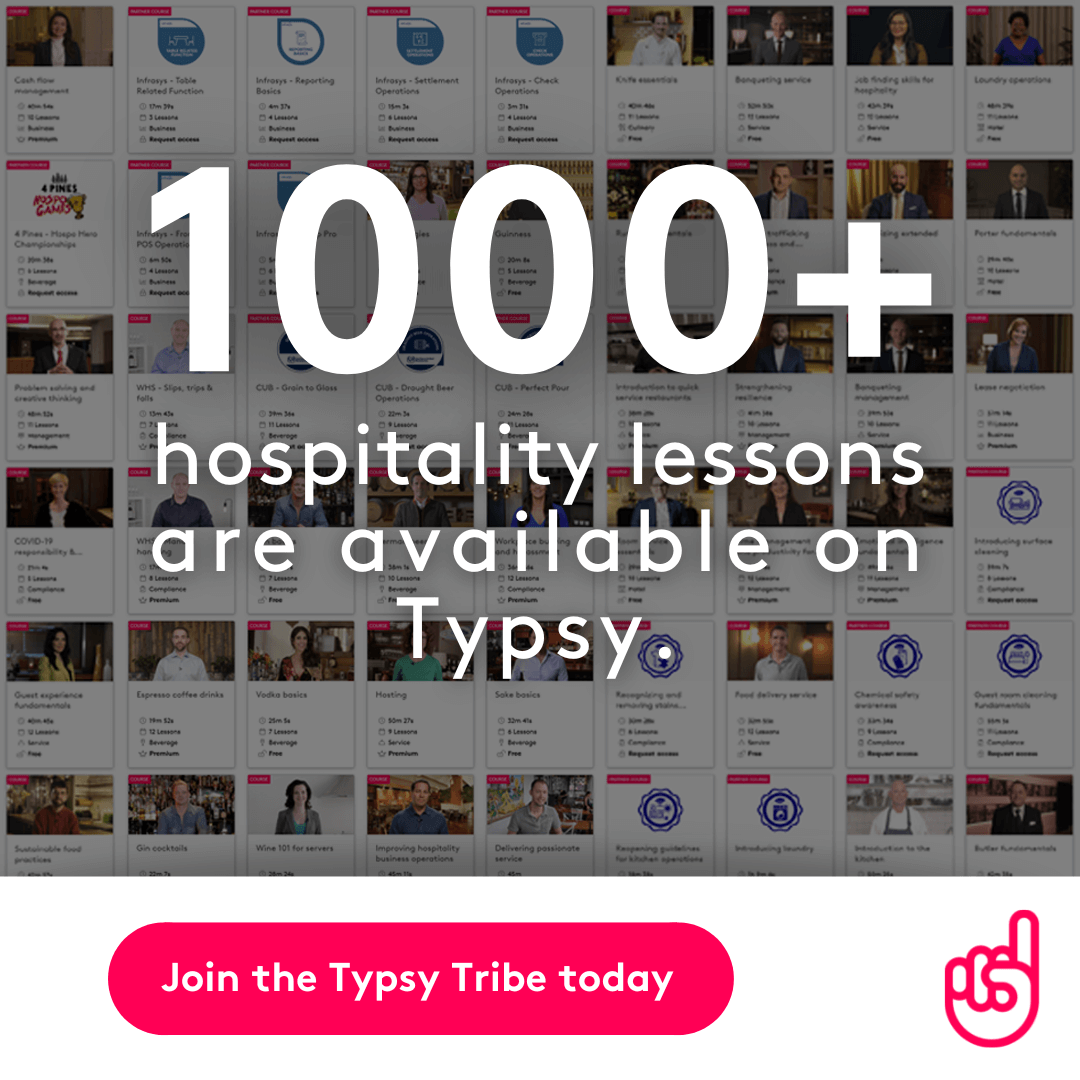Curt Archambault is the Vice President of People and Performance Strategies, a consultancy that helps businesses train their employees to work and communicate more effectively.
After spending more than 25 years in the hospitality industry, he is an expert when it comes to restaurant training. We decided to pick his brain for his best staff communication tips.

How important do you think communication is in the hospitality industry?
I would say it's key. In order for us to really dialogue well with our guests, we have to take out some of the noise that is in the background. That is usually related to communication challenges between front of house and back of house and how management interact with their staff. A lot of these things impact our ability to deliver a great experience for the guest.
What can a manager do to create a better team environment?
One of the great things about hospitality and also one of the greatest challenges is that a lot of managers grew up through the ranks. So their idea of what it means to be a good leader in a restaurant tends to be based on how they were lead. We sometimes have to make them realize that the people who supervised them perhaps haven’t done a great job, and that you have to remember where you came from.
As a manager, put yourself on the front line. I know as a leader you have a lot going on, so you may lose sight of how difficult it can be in the hospitality business. Always remember where you came from and put yourself in your team’s position.
I used to always say: the higher up you go in leadership, the less about you it becomes. I think it’s key for leaders to realize that just because you are the boss, it doesn’t mean it’s all about you and a bag of chips. It's more about the people you lead. Leaders often lose sight of who got them where they are, so you kind of have to back up and say 'my job is to help them be better'.
Do you have advice for managers on resolving conflicts between staff members?
Conflict is usually based on how you perceive conflict. We use a tool to recognize different personality types, and one thing we do is help managers learn how to recognize different styles of employees and then apply what will work best for these employees. So if two employees are going at it, recognize that you might have one person who just wants to get out of this conversation as quickly as possible, and another who just wants to get into it.
"As a leader, always remember where you came from and put yourself in your team's position."
My job as a leader is to not take sides, but in some cases you’ll have to mediate to help work through these conflicts. After that, we can dial it back and say: what was the root of that conflict? A lot of the time the conflict is based on differences in styles and views of the world. One of the roles of a manager is to work with these different styles and help employees come to a conclusion.
Do you find there are particular issues between different generations, for example Millennials as opposed to Gen X employees?
You know, when I hear people talk about different generations it kind of drives me a little bit crazy. Recently I was talking to a young woman who was clearly a millennial, and she was talking about how it’s really important for millennials to be transparent. And I’m a baby boomer, but I’m like: well, I want transparency too. So it really doesn’t have anything to do with generations, except for how we have been conditioned in our generation.
Every group has different styles within them. Let’s not assume other age groups don’t have the same expectations. But it seems like millennials are more assertive, whereas before people just kind of kept their nose to the grindstone and got the job done. Millennials are more like, 'no, I want that promotion now or I’ll move someplace else.'
I read that you train people in emotional intelligence. Can you tell me more about that?
It’s about having empathy and understanding and being able to see the impacts of communication. It’s not about what people say, it’s about how people say it. That’s how I define emotional intelligence.
Especially in hospitality, we get so caught up in the task, we don’t always see the person. By understanding what emotional intelligence means you can hear the meaning behind what people are saying. Listening is an area we struggle with in the hospitality industry.
We help people recognize that it’s not just about the words coming out of someone’s mouth. The words are just 7 percent and the rest of the message is defined by all the other stuff – body language. Emotional intelligence helps you to understand what is meant and how to work with that.
Does that come into play in dealing with customers as well?
Absolutely. A really good server is someone who can pick up on those emotional intelligence cues without the guest having to request anything. That person can anticipate that a guest is in a hurry or pick up on any of those little things. We do a great job training service, but sometimes that creates kind of a robotic experience.
My biggest pet peeve is when a server comes up to my table at the end of the meal and just goes: ‘can I get you a dessert?’ I know that’s what it says in the steps of service, but is there a different way you can interact with me? You could say ‘would you like any coffee and maybe there’s a dessert you guys would like to share?’ Recognize that most of us are trying to watch our weight and don’t want to eat too much, but we’d all love a little scoop of something. Recognize what your customers are telling you without having them tell you.
Do you have any recommendations for team building exercises that restaurants can do?
A big challenge for restaurants is that they don’t have a lot of extra labor to do that kind of stuff. So you have to think about how you can build teamwork in the moment. A great way to build team work is to recognize and reward team behaviors. I think that’s the easiest way for hospitality folks to do it, because it can be done in the moment.
Don’t underestimate the value of the little things like pleases and thank yous. When someone does a great job helping out a teammate, recognize that in the moment. Give them some feedback. I think the easiest way to build teams is to focus on behaviors you want to see happen within the teams.
"A really good server is someone who can pick up on cues without the guest having to request anything."
We have done incentive contests based on team goals. A lot of time in the restaurant industry we focus on individual goals, like who will sell the most desserts in a day. Come up with a team goal instead, like 'our target is to sell 35 specials during lunch as a team, and if we do this we all get a prize'.
Another thing is for the manager to take time and recognize employees as human beings. It doesn’t always have to be tied to a business outcome. You can just ask questions that get people talking, like 'what was your favorite vacation you ever went on?' I find that when you get to know someone better, you tend to give them a little more benefit of the doubt.
Visit People and Performance Strategies to learn more about Curt's consulting services. You can also follow the company on Facebook for some excellent staff management tips.
.gif?width=1200&height=400&name=Hubspot%20Blog%20banner%20GIF%20(2).gif)


